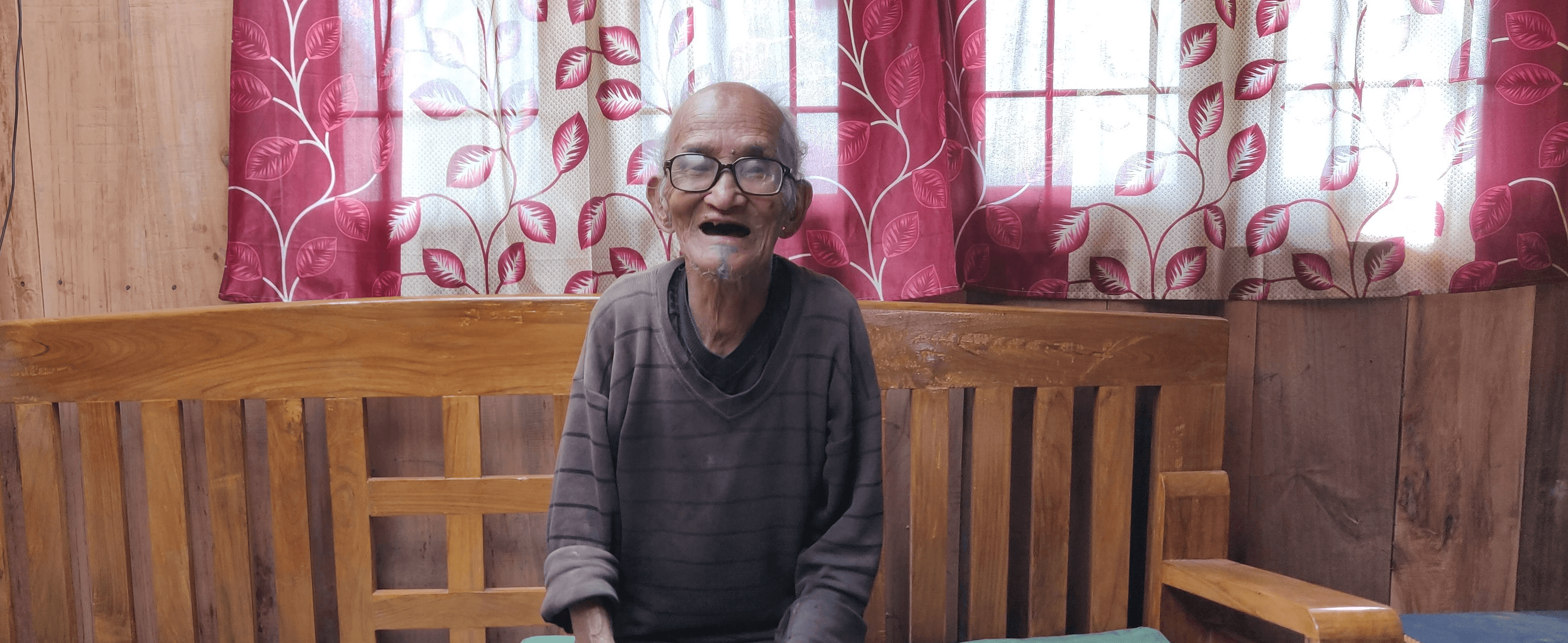Interaction Designer
Saving an endangered language.
August 2023 — Present | LearnApatani
My role: Research, Design, Ideation, Prototyping, User Testing, Concept
Team: Yase Dusu
———————————————————————————————————————————————————————————————————————————
Challenges
In 2011, Apatani or Tanii, the native language of the indigenous tribe in Ziro, India, was spoken by approximately 44,800 people. However, the language now faces a critical challenge. The number of speakers has sharply declined, particularly among younger generations, and is predominantly limited to the elderly. This decline began with the exposure of Ziro to the outside world and the subsequent wave of modernisation, which suppressed the native language in favor of more dominant languages like Hindi and English. Contributing to the decline are factors such as parents not passing on the language to their children, a lack of social settings for language use, and a negative perception of the native language.
UNESCO has officially classified Apatani as an endangered/unsafe language. While modern education is crucial for livelihood and growth, the threat of losing one's mother tongue poses a serious challenge to cultural existence. The diminishing use of any language represents a loss for humanity, and without immediate efforts to preserve it, revival may become an insurmountable challenge in the future.
What is LearnApatani?
It is an application designed to teach 'Apatani', an endangered language from Ziro, Arunachal Pradesh, India. In this initial version, the app takes a fun approach to language learning, specifically by teaching how to flirt in Apatani. It includes Apatani-to-English translations for each word, aiding in easier sentence formation. Additionally, audio recordings of the sentences are provided to assist in learning how to pronounce them.
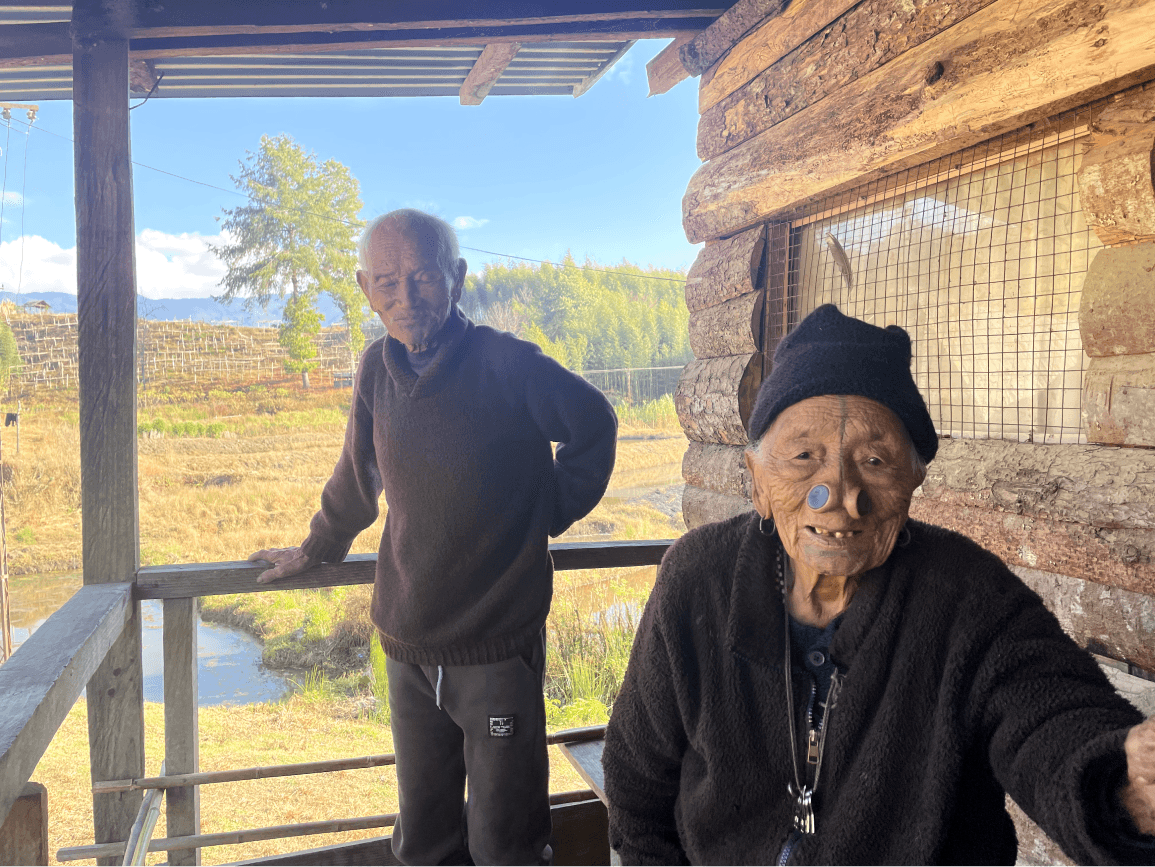
An Apatani couple who own an organic farm.
Process
A lesson from Chennai
I moved to Chennai, India, to work with Rocketlane, and I immediately noticed something very different from my past experiences. In Chennai, the majority of people communicate in Tamil even at the office, despite being well-versed in English. I was a bit surprised at the dominance of the language because, in spite of being a very ancient society, their language is well-preserved and still globally used. Whereas mine, being a relatively newer society, is losing its language. I asked my Tamil friends about the secret to their language preservation, and a simple answer that I got was “Tamil is not just a language, it is us,” and that hit me hard and made me realise that the same is true for my language, Apatani. If my language disappears, so will my identity.
Understanding why the language is dying
Upon general observation, I noticed that Apatanis residing in Ziro predominantly still speak the language, but those who had moved out to study or work are the ones mostly not using it much. So, I decided to create three personas and conduct research:
⛄ Staying in Ziro
🌆 Staying out of Ziro
👪 Inter-cultural parents
The personas and their stories helped me understand why they don’t use the language. Are the underlying reasons the same for all, or is there something else?
I also added a 4th persona: '🗣️ language learner.' The language that this persona might be learning could be any language, not necessarily Apatani. The reason I added it was to understand their underlying motivation to learn a language that is not their native language and if there are some learnings that I can use for my project.
The structure for my interview was as follows:
Step 1) Introduction and Context:
I gave context about the current state of the Apatani language so that they are aware of it. I told them why we need to preserve it today and how it could impact our future generations.
Step 2) Information Gathering:
Background and Experience:
I asked them how comfortable they were in conversing and understanding the language.
How often do they converse in Apatani?
With whom do they converse?
Did they try to learn Apatani? Anyone taught? Or did they try self-learning through any resource?
Challenges faced:
Do they want to learn the language?
Did they try to learn the language?
What difficulties do they face when they try to learn or communicate?
Any obstacles that discouraged them from using the language?
Motivation and goals:
Why do they want to learn or improve their Apatani?
Any specific goal like being able to communicate with family or to preserve the language?
Step 3) Challenges and Support:
Why do they think they were unable to learn the language?
Is it lack of time or resources?
Did they face difficulty with pronunciation, grammar, or vocabulary?
Step 4) Feedback:
What do they think about the idea of an Apatani language app?
Making sense of the data
Following are the interview insights I found:
Persona 1: ⛄ Staying in Ziro
Her environment doesn’t require learning Apatani, neither at home nor at her workplace as they communicate in Hindi or English.
She feels comfortable talking to people who can't speak the language well because they also don't care how she is speaking. She is comfortable speaking to those who won't judge.
She feels conscious about how she is speaking with elderly people. Also, because she doesn't understand what they are talking about, the vocabulary is complex, and the accent is different.
Growing up, both of her parents were busy with work, so they had a nanny who took care of her and her siblings mostly, and the nanny spoke Hindi.
The school was strictly an English-only place, and talking to other students in Apatani didn't make sense because their native language was different.
At home, no one spoke Apatani to her.
When she went to Don Bosco School Ziro, her Apatani started improving because they were taken to Apatani Christian mass.
Now, after growing up, she has started speaking Tanii because of realisation. She talks occasionally to parents and friends.
Persona 2: 🌆 Staying out of Ziro
She can understand but can't speak Apatani.
Can converse with grandpa because he doesn't use complicated words with her.
In Ziro, she converses with elders because they do the same, and out of respect.
Talks with friends also sometimes when they get a sense of community.
Used Apatani a lot when she was in college because there was a need, especially when she needed to convey something at home that others shouldn’t know.
Parents also speak in Hindi mostly since her childhood.
Started learning Apatani from uncle's children because they speak the language. The kids learnt from their parents.
Finding it difficult to learn the language because it's not in daily use.
Persona 3: 👪 Inter-cultural parents
Both parents converse in Hindi mostly, even though the mother is from the Apatani tribe and the father from a different one.
Grew up in an environment where he had friends from different tribes, so they mostly conversed in Hindi.
Not much in touch with the mother’s roots, doesn’t visit her hometown Ziro often, so never found the need to learn the language.
He can understand a little but cannot converse at all.
The questions I asked the ‘Language learner’ persona was little different because they were not directly connected to Apatani.
Persona 4: 🗣️ Language learner
The interviewee was learning Swedish
Most people near him conversed in Swedish so he was learning the same. "When you don’t understand, you feel like an outcast."
He got a sense that since he is staying in Sweden, why not learn the language as well?
Usually learns when he has time and is sitting idle, learning something valuable.
He learns mostly via Duolingo, and if he wants to learn something specific, he Google searches, especially the grammar usage. When to use 'A' or 'An'?
Targets to complete at least one word, small milestones. Learn a word a day.
He wished if there was a community channel to ask people, would be nice to have cultural context like greeting someone for summer holidays, how do I do that?
Finds speaking and writing the most effective way of learning. It helps him go to the office and use the word; he thinks of ways how to use it.
Only listening and not using them is not helpful, so a way for them to use it. If it's practical, then memory builds.
Building in public
After talking to a few individuals, I decided to build in public to keep myself motivated. I posted on Twitter about my project and received quite a lot of support, which I didn’t anticipate at all, and it motivated me to push further.
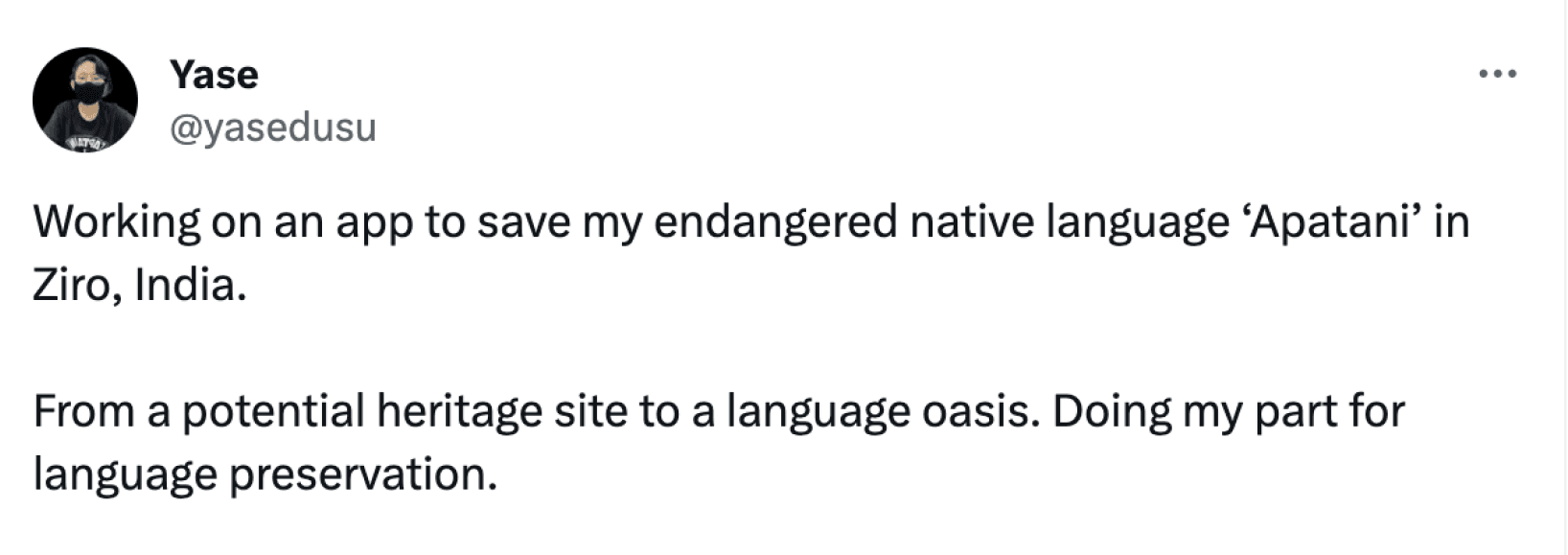
Responses I received 👇







Maintaining a structure
Languages have a set of rules that govern the structure of sentences, and the arrangement of words. Even the Apatani language has some structure. For e.g. most of the names of 4-legged animals in Apatani start with 'S' such as Sii (Cow), Subu (Gayal), Siitii (Elephant) and Siidiñ (Deer). So, I started by creating a basic structure to store the information.
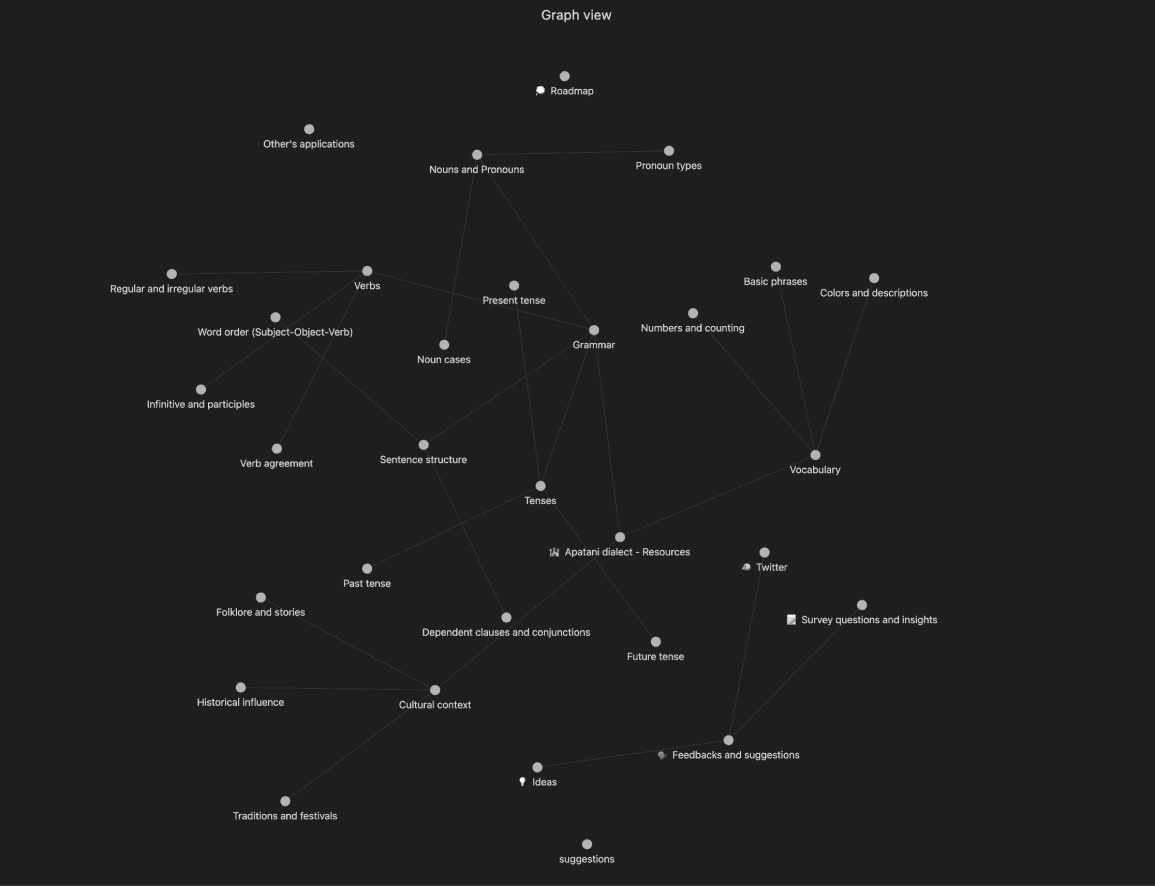
Prototyping
Only research and no actual work would make less progress, so I set out to create a very basic prototype to test out my concept.
Based on the information I gathered after talking to people, the common thing they told me was, 'I don’t see the need to communicate in Apatani'. So, I decided to take a silly approach, create a purpose for people, and make it the talk of town. I took the approach 'Flirting 101: If you want to impress an Apatani girl or boy, then learn Apatani.'
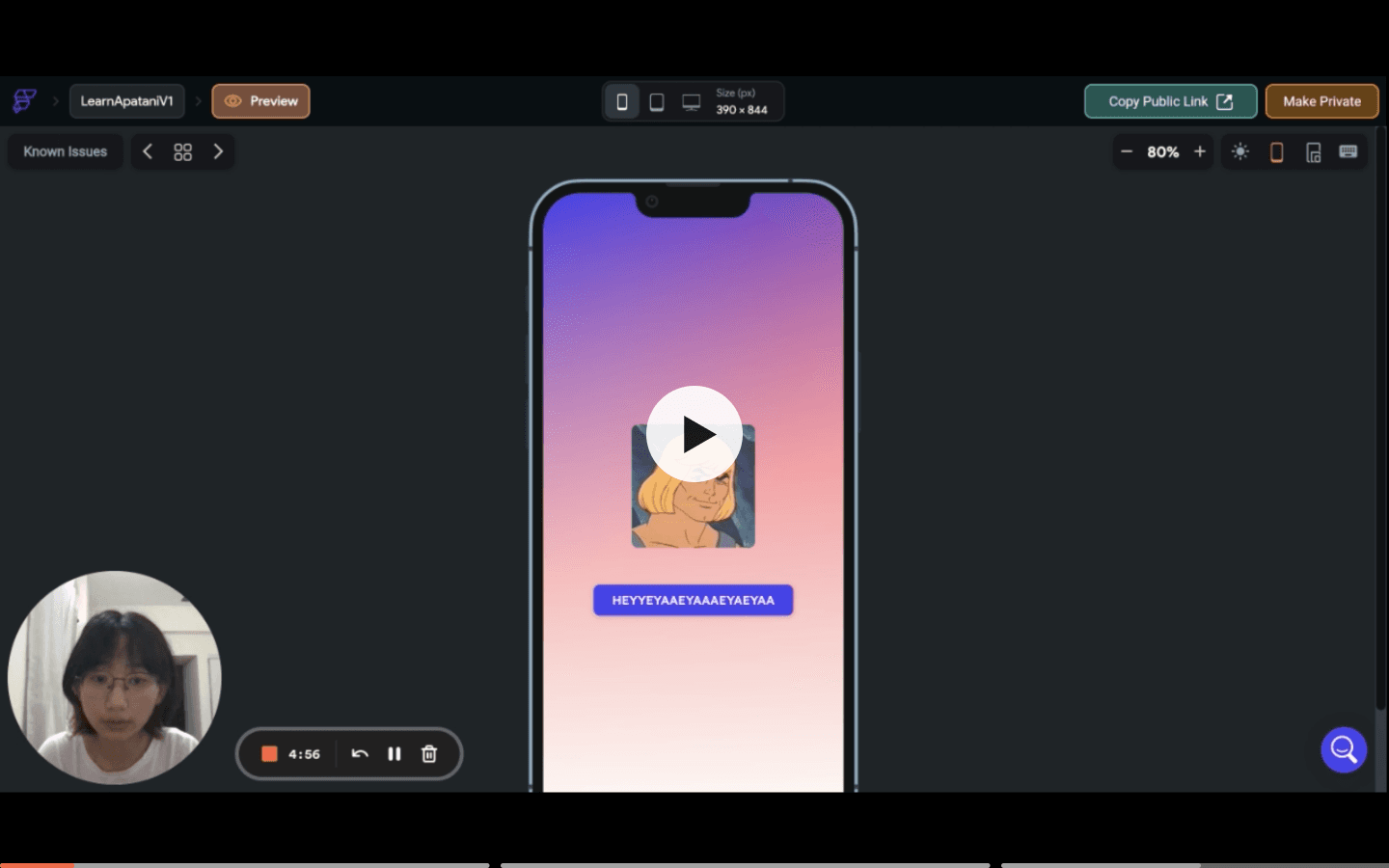
Testing out to see the reactions
I gave this simple prototype to a few friends and asked them to share their feedback. They thought it was funny and clever and also suggested few ideas.
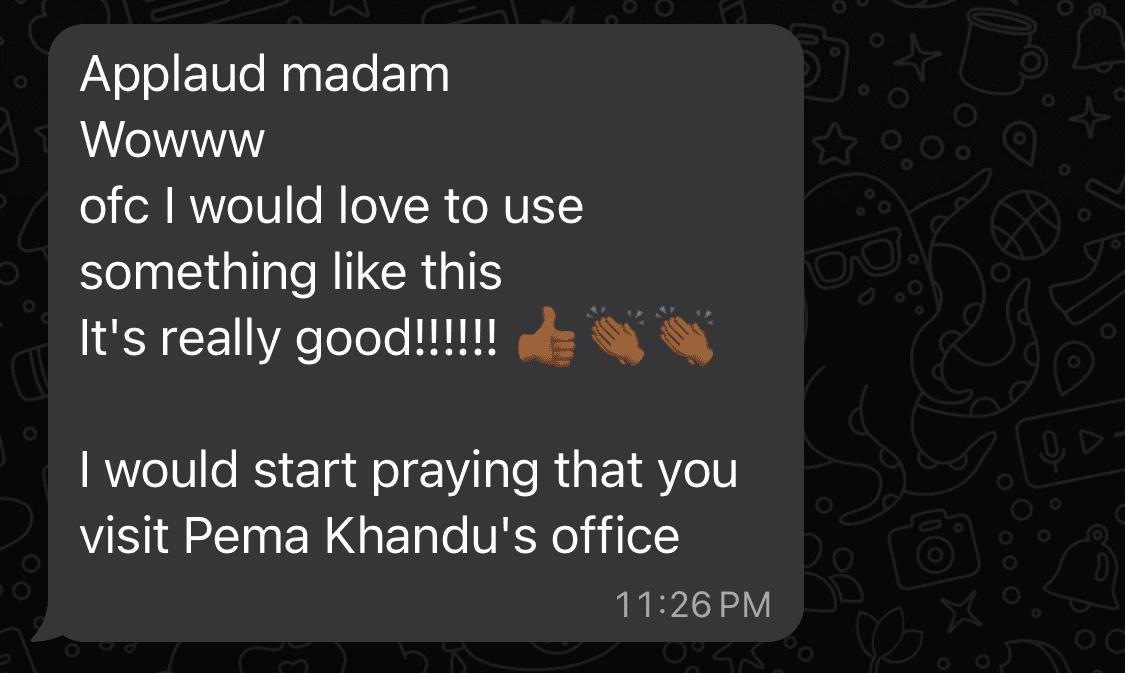
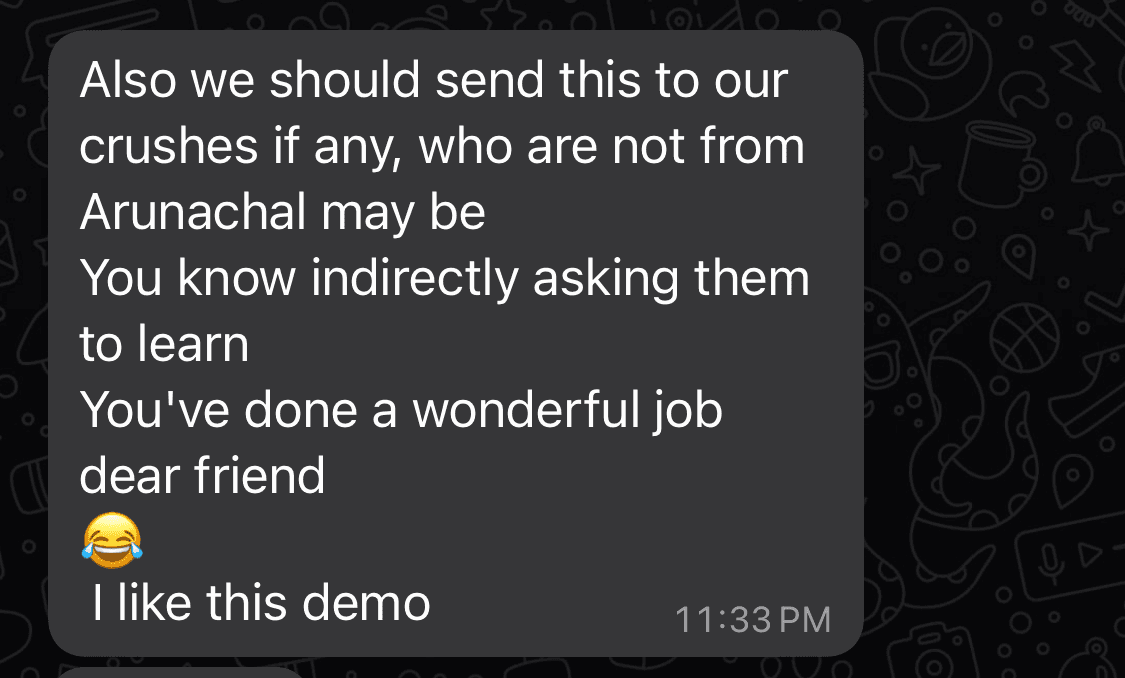
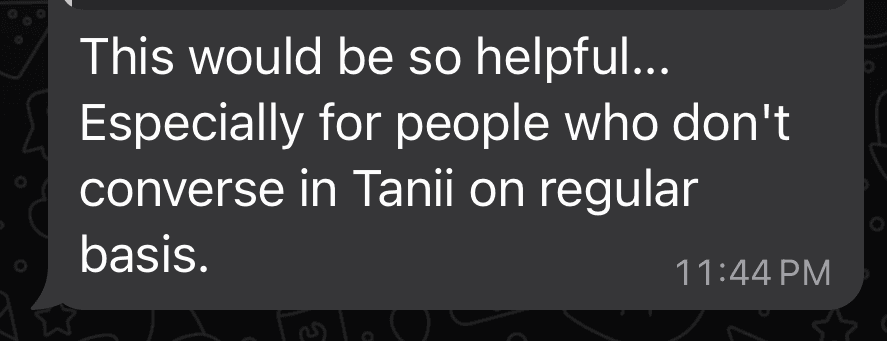
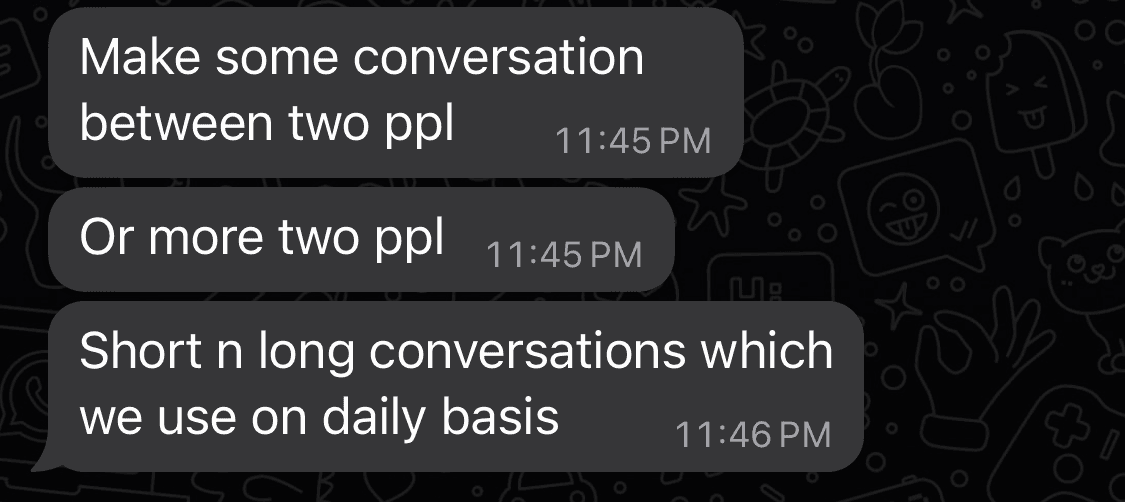
Learnings
Saving a language is a difficult task and I should collaborate with different people to make this truly useful.
I should collaborate more with linguists, local communities, and the government.
Creating space to use the mother tongue is very essential.
It is important to learn about the history of the tribe, as it can provide valuable insights like from book such as 'The Apa Tanis and their Neighbours: A Primitive Civilization of the Eastern Himalayas - C. Von Fürer-Haimendorf.'
Visit LearnApatani website.
© 2024 Yase Dusu. All Rights Reserved.
